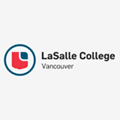Career Colleges and Vocational Schools in Canada

Conestoga College, Institute of Technology and Advanced Learning
Kitchener, Canada
Connestoga College is one of Canada’s top polytechnic universities, founded back in 1967 as a small community college. Its main campus is located in Kitchener (Doon), offering a wide pool of courses – ranging from short ones to full four-year degrees in Business, Engineering, Health & Life Sciences, Media & Design, and so on.
The institution is ranked among the best colleges in Ontario, for which reason it is not surprising that about 89 percent of graduates find employment within six months of graduation. It has also started the development of a new campus with the support of the... See full description.

Creative Boost
Montreal, Canada
Creative Boost is an art & design institute situated in Montreal, Quebec, Canada. Creative Boost offers photography courses, pottery lessons, art courses and workshop. There is an internship opportunity for 3 months provided by the institute. Creative Boost also offers services to students to create and organize their portfolios for university application. Students interact with art teachers to discuss their portfolios according to the university specifications. Creative Boost is always keen to appoint a sculpture teacher, drawing teacher, digital photography teacher and nude model (male... See full description.

LaSalle College International Vancouver
Vancouver, Canada
LaSalle College International Vancouver is an educational institution, located in Vancouver, Canada. It is part of LaSalle International, an organization that brings together 16 international establishments and a virtual E-learning campus. LSC Vancouver’s campus is situated in the city’s financial district, which means that students can take full advantage of the museums, shopping centers, and public transportation of the city. The programs offered by the college include Fashion Design, Fashion Merchandising, 2D/3D animation, Jewelry Design, Interior Design and Graphic Design. All... See full description.
Career Colleges and Vocational Schools in Canada by City:
KitchenerMontrealRimouskiVancouverAbout Career Colleges and Vocational Schools in Canada
With a few exceptions, the types of opportunities available for vocational education in Canada are very similar to those offered in the United States, its southerly neighbor. Some of these opportunities may become available in secondary school (high school), usually in the form of career-related classes and/or work-study programs, but the bulk of these are availed to students only upon successful completion of their secondary school studies.
Vocational Education in Canada
Like the primary and secondary education system, post-secondary vocational education in Canada is also the responsibility of the individual provinces, of which there are ten. Vocational education is available at both the public and private level, the latter of which comes in the form of private career colleges.
Private Vocational Education
Also called training institutions or vocational institutes, private career colleges are governed and overseen by laws enacted by the legislature in each individual province. One example of this is the Private Career Training Institutions Act in the province of British of Columbia, which was voted into law in 2003. This act essentially provides for an agency to oversee, regulate and accredit the career institutions located within the province, an agency appropriately named the Private Career Training Institutions Agency, or PCTIA. Agencies such as the PCTIA help to ensure that the instructional staff at private career colleges are qualified and the curriculum—the knowledge and skills that students will ultimately learn—matches the standard for that specific career field or industry. This helps to prevent for-profit institutions from becoming “degree mills,” at which students are graduating with a diploma or certificate without gaining the training or skills they were promised when shelling out their tuition.
Public Vocational Education (All Provinces but Quebec)
In all provinces but Quebec, publicly funded vocational training takes place at “colleges”—the equivalent to junior colleges in the United States. Tuition for these colleges is usually substantially less than it is at private career colleges, as most of the funding for these schools is derived from the provincial government, with some also added by the federal government and through research grants. As it is with junior colleges in the U.S., students enrolled in provincial junior colleges have several career options they can pursue, some leading to certification and others to associate degrees. Training is offered in fields such as automotive repair (body and engine), hospitality services, technical, construction, heating and air conditioning repair, cosmetology, medical and dental assisting, nursing, accounting, office administration, restaurant management and many more. Students earning certification in the career field they’ve chosen are then qualified to join the workforce in entry-level positions, while those earning an associate’s degree have their choice of seeking immediate employment or continuing their education at the university level.
Public Vocational School (Quebec)
Quebec has a slightly different structure for its public vocational education system. In this province, compulsory secondary education ends after grade 11, rather than grade 12 as in the other provinces. At this point students have a couple of different options for continuing their education. They can either enroll in a two-year program to prepare for university admission, or if they prefer, they can sign up for a three-year vocational program. The latter of these two options is designed to help prepare students in a number of specific career fields that are important to the Quebec economy, including the medical and dental fields, paralegal, construction, hospitality services and a number of different service industries.

